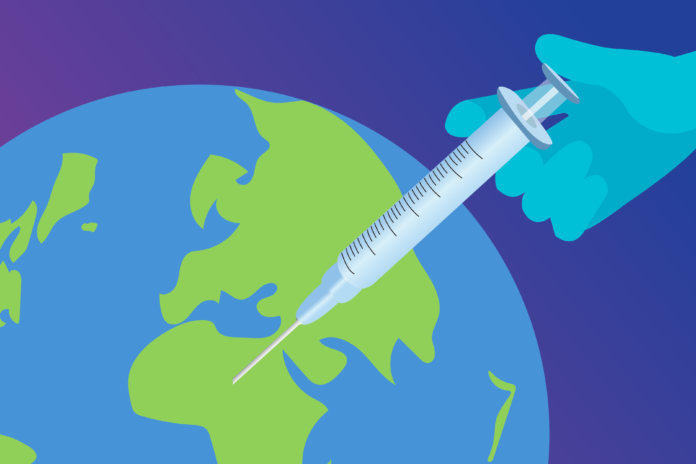With growing vaccination rates in the U.S., two professors share their thoughts on the consequences of the inequitable distribution of COVID-19 vaccines
While vaccination rollout in the U.S. is well under way, with about 42% of the population at least partially vaccinated as of April 25, there are still many countries who have not been able to vaccinate even 10% of their population. According to experts, this inequitable distribution of vaccines has epidemiological, political and economic consequences, not only within the countries that have limited access to vaccines, but throughout the world as a whole.
Bob Gilbertson, a distinguished professor of plant pathology at UC Davis, pointed out two factors that contributed to a lack of vaccine access in developing countries. First, Gilbertson stated that many countries struggled to respond quickly to the outbreak of the COVID-19 pandemic and lack the information needed to produce vaccines. Second, many countries lack resources and funds to produce their own vaccines and are outcompeted by countries such as the U.S. and the U.K.
Before herd immunity is reached, more COVID-19 variants can arise. The more the virus circulates, the more opportunities it has to mutate. These variants, which have the potential to be more transmissible or more pathogenic, can spread not only within developing countries, but also to different parts of the world.
“We know this virus does not respect countries’ borders,” Gilbertson said.
Gilbertson emphasized the importance of trusting science. He hopes that the U.S. will continue ramping up vaccine production so the government will be able to assist other countries that cannot produce enough vaccines for their population on their own.
“I continue to tell students that one of their jobs today is to go out as ambassadors for science and that they have to try to be aware, reasonable and argue against anti-science,” Gilbertson said. “People need to get the message out that these decisions are based on solid scientific research and that these vaccines are totally safe.”
Selva Demiralp graduated from the UC Davis Economics Ph.D. program in 2000 and is now a professor of economics at Koç University in Istanbul, Turkey. Demiralp stated that even if the entire population was vaccinated and herd immunity was attained within the U.S., there would still be significant economic costs of vaccine inequality.
For example, if the pandemic is still active in Turkey, COVID-19 would continue to negatively impact the Turkish—and in turn, world—economy. Turkish production would still be limited due to lockdowns, and Turkey would not be able to export as many goods to other nations.
According to Demiralp, this would impact the U.S. economy because the U.S. imports intermediate goods from Turkey. For example, Turkey might export steel to the U.S. that can be used in car production. If Turkey cannot produce as much steel, then it will reduce car production in the U.S.
If the populations of richer countries are vaccinated within the first half of 2021 while lower income countries can only vaccinate half of their populations, the total costs of the loss of exported goods worldwide will be $3.8 trillion, according to Demiralp. Up to half of the total cost will be borne by the richer countries, Demiralp said.
To prevent further economic loss, the World Health Organization (WHO), the Coalition for Epidemic Preparedness Innovations (CEPI), Gavi and other institutions put together the COVAX initiative. Their goal is to initiate a cooperative effort to manufacture two billion doses of vaccines to inoculate 20% of each country’s population.
“Our research highlights that it is not an act of charity but an act of rationality to contribute to efforts such as COVAX,” Demiralp said via email. “This is because in the absence of equitable distribution of vaccines, the wealthy countries would need to pay trillions of U.S. dollars, which is much more than the cost of producing enough vaccines to inoculate the world population.”
Written by: Liana Mae Atizado— features@theaggie.org





